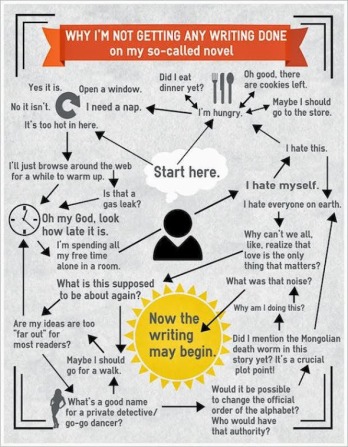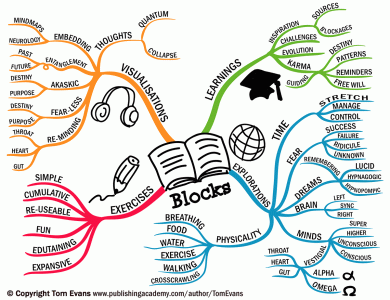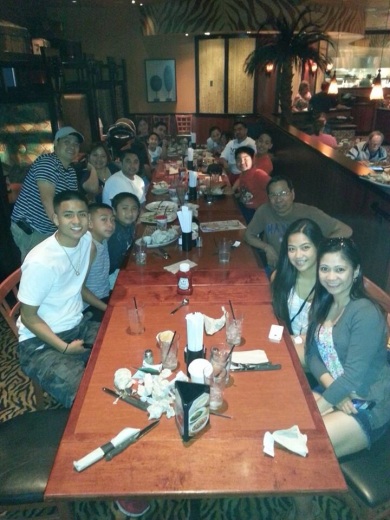As I studied Mike Rose’s Rigid Rules along with Patricia Huston’s Resolving Writer’s Block, both authors focus on the topic of the most frustrating obstacle a writer can ever face: writer’s block. Rose dramatically defines it as, “that frustrating, self-defeating inability to generate the next line, the right phrase, the sentence that will release the flow of words once again” (389). While Huston’s simple definition states: “a distinctly uncomfortable inability to write” (93). Although they have a similar definition, they approach their articles in different ways. As Rose ‘s article interprets the differences of composition process between blockers and non-blockers and determines how rigid rules applies to their struggle, Huston breaks down the ways to overcome writer’s block in three different levels of blockage. Similarly, the authors give out insightful ways to inform writers on treatments and preventions. The articles, in a way, respond to each other.
From my last blog post on my connection with Rigid Rules, I concluded my thoughts with an extended question about writer’s block: in what ways can writer’s block be avoided or lessened? With gained knowledge on Rose’s article, I have found a way to collect more information by connecting my reading with Huston’s article. Huston illustrates direct answers to my concerns: treatment and prevention for writer’s block.
These initial concerns I have trigger because of how often and likely I expect myself to encounter blocked writing when I have an essay assigned. The two main reasons why I face writer’s block frequently are due to procrastination and the rigid rules my teachers would have us apply to our work. And after reading and analyzing these two articles, I felt a sudden relief that I was not alone, and there is hope in improving my composition process.
If there was one thing I learned in both of the articles is that you must pace yourself while keeping an open mind while writing. Both authors suggest making a sufficient plan either before starting to write or passing by the stage of blocked writing. Rose demonstrates a problem-solving strategy that can be applied to the writing process that has an acronym of “TOTE”, which represents test, operate, test, and exit (392). Huston also suggests having some type of approach when writer’s block has hit. She advises to create a web of ideas about the topic of the essay and “give yourself permission to be imperfect” (95) to get your brain to generate your mind flow. I completely agree with both authors, and applying them to anyone’s writing routine will make at least some type of difference in their progression. With these concepts in mind, writers will have more room for an open-mind on their topic, developing and improving their work more efficiently.
 Rigid rules are inevitable and are always going to be around whenever there’s a writing assignment, and it is almost always a guarantee it will be the cause of losing a writer’s train of thought, or any thought at all, about the topic of the writing assignment. According to Rose’s study on his 5 students considered the non-blockers, their common mindset was that if their initial ideas on their assignment does not work out with the flow of their work, they accept the fact that they have to change and recover it— writing around the bush of the rigid rules. Their practice then leads them to a better route in their writing, which Rose describes as “this lack of precision [that] simply masks habitually enacted alternatives and routines” (397). It seems hard to believe, but I imagine that overthinking and focusing on applying the rules on writing instead of expressing what the writer thinks about the topic, can be overwhelming. Huston seems to be in favor as well as she indicates that minimizing anxiety is the key to prevention, and proposes that an efficient way is to “write as you go” (96). The correct and precise answers instructors look for are important, but the writer’s ideas are too. Although it may be difficult for some writers to balance them out, causing mild to major blockage during their process, having consistency and space to work around open-mindedness will do the trick. Being stuck with one problem, trying to constantly fix it, can be more complicated than changing the whole idea just for the writer’s flow to be back on track again.
Rigid rules are inevitable and are always going to be around whenever there’s a writing assignment, and it is almost always a guarantee it will be the cause of losing a writer’s train of thought, or any thought at all, about the topic of the writing assignment. According to Rose’s study on his 5 students considered the non-blockers, their common mindset was that if their initial ideas on their assignment does not work out with the flow of their work, they accept the fact that they have to change and recover it— writing around the bush of the rigid rules. Their practice then leads them to a better route in their writing, which Rose describes as “this lack of precision [that] simply masks habitually enacted alternatives and routines” (397). It seems hard to believe, but I imagine that overthinking and focusing on applying the rules on writing instead of expressing what the writer thinks about the topic, can be overwhelming. Huston seems to be in favor as well as she indicates that minimizing anxiety is the key to prevention, and proposes that an efficient way is to “write as you go” (96). The correct and precise answers instructors look for are important, but the writer’s ideas are too. Although it may be difficult for some writers to balance them out, causing mild to major blockage during their process, having consistency and space to work around open-mindedness will do the trick. Being stuck with one problem, trying to constantly fix it, can be more complicated than changing the whole idea just for the writer’s flow to be back on track again.
With an open-mind, another’s comments and feedback may be helpful for improving and refining one’s work. Even professional writers practice this part of the composition process. Rose and Huston give out similar advice when it comes to asking others for criticism on the written assignment. While Rose’s advice claims that the problem with getting stuck with rigid rules is because of “resistant to or isolated from corrective feedback” (399). He implies that applying the effective feedback a writer receives will show results in their work. Similarly, Huston suggests working with supportive people and making them an audience for your work. This concept’s purpose is to reduce anxiety and stress in order to gain confidence in the writer’s work to proceed with their process (Huston 95). In order to see improvement in writing after receiving feedback someone, taking actual consideration into what they have to say and applying them to your work are the only way to seek obvious results. Being stubborn about your work when you yourself are already struggling on the process is not going to be effective. Being an open-minded writer will give way for the mind to consider options and ways to retouch or improve upon their work.
With my initial question of “what other ways can writer’s block be avoided?” examining both the articles of Mike Rose and Patricia Huston has provided more answers than I expected. Writer’s block, whether it be due to procrastination, rigid rules, or simply just anxiety about writing— can be treated and prevented in efficient ways. Putting the right amount of passion on what is being written will give the route to avoid that white blank page. Give the mind some freedom and loosen up on the information on rigid rules, and this will lead not only to less anxiety, but it will boost up the confidence in further and future writing.












